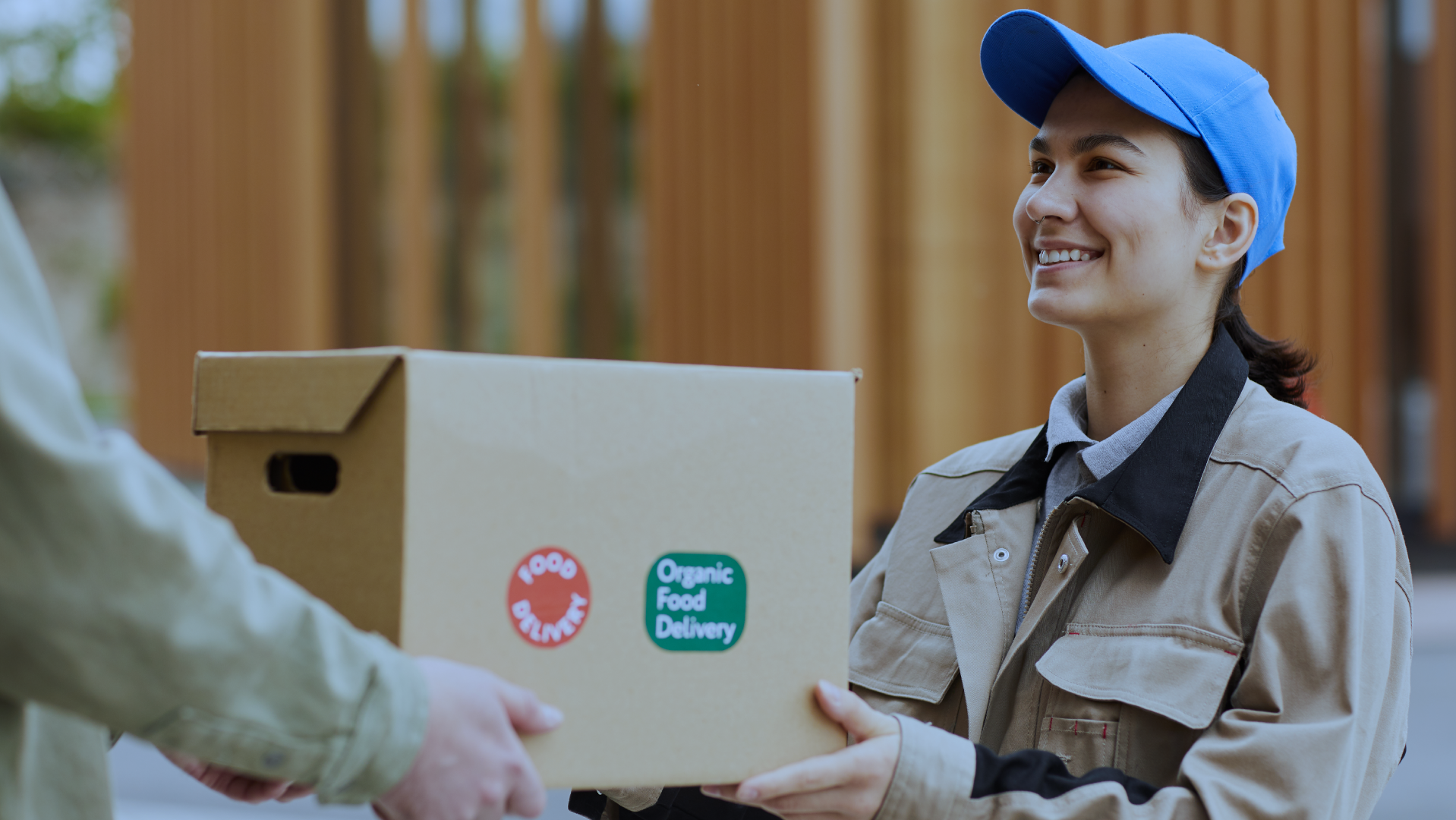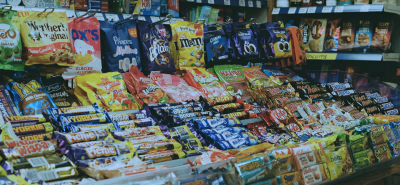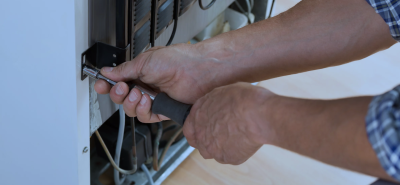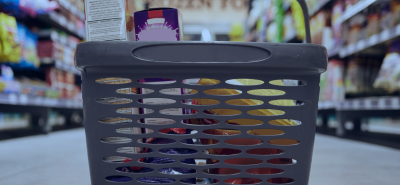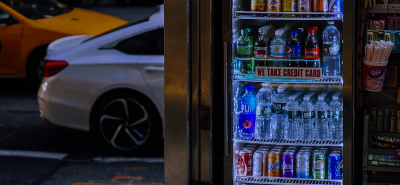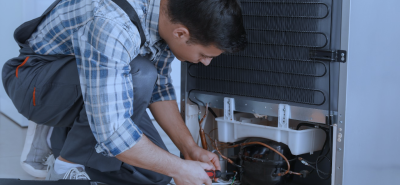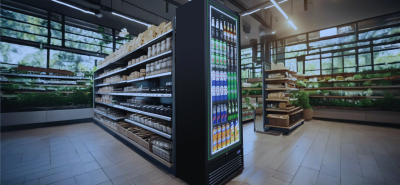Smart Fridges for Last-Mile Delivery: Powering the Future of Logistics
Last-mile delivery is one of the costliest and most complex parts of the supply chain, especially for temperature-sensitive goods. As consumer expectations grow and e-commerce reshapes retail, businesses are seeking innovative ways to make their last-mile operations more efficient, sustainable, and profitable. Enter smart fridges, an emerging solution that is turning last-mile delivery into an opportunity rather than a burden.
Husky, a UK leader in refrigeration innovation, is at the forefront of this change with its Husky Intelligent Fridges. These smart, connected units are more than just cooling appliances: they are fully fledged, unattended retail points that reduce costs, eliminate waste, and create new revenue streams.
In this article, we’ll explore why smart fridges for last-mile delivery are becoming a game-changer, looking at the growing importance of last-mile logistics, the trends that are driving its significance, the unique implications for temperature-controlled goods, and the specific challenges they face. Finally, we’ll show why Husky’s Intelligent Fridges are the most practical way to overcome these obstacles.
The Growing Importance of Smart Fridges for Last-Mile Delivery

Last-mile delivery refers to the final leg of a product’s journey from the warehouse or fulfilment hub to the end customer. Although it is the shortest segment of the supply chain, it is by far the most expensive, often representing 40–50% of total delivery costs. This disproportionate impact means any inefficiencies quickly erode margins, particularly in sectors such as grocery, meal kits, and convenience retail where operating profits are already razor thin.
In the UK’s rapidly evolving e-commerce environment, last-mile performance isn’t just a cost issue, it’s a customer satisfaction driver. Late or failed deliveries can damage brand trust, while seamless, on-time fulfilment builds loyalty. As a result, companies are actively looking for new ways to optimise this crucial stage of distribution.
Husky has developed smart fridges for last-mile delivery to offer a novel solution to this challenge. By placing inventory closer to customers, they effectively “shrink” the last mile to just a few steps, removing the need for repeated van trips and reducing per-order fulfilment costs to a fraction of home delivery.
Trends Driving Last-Mile Significance
Several powerful trends are amplifying the importance of last-mile logistics:
- Urbanisation: With around 85% of the UK population now living in cities or towns, delivery networks must contend with dense traffic, parking restrictions, and congestion charges. These urban challenges increase driver time and fuel consumption, pushing last-mile costs higher.
- Rising consumer expectations: Same-day delivery is no longer a luxury, it’s becoming a standard expectation. Customers want speed, flexibility, and convenience, meaning logistics providers need to offer multiple delivery options and shorter lead times.
- Growth of direct-to-consumer (DTC) models: Brands are bypassing traditional retailers and shipping directly to households, a market now worth more than £500 billion in the UK. This surge in parcel volume puts further strain on last-mile infrastructure.
In this context, Husky Intelligent Fridges provide a cost-effective, scalable way for brands to meet demand without overburdening their logistics operations. Rather than delivering 50 individual orders to 50 addresses, a single replenishment trip can restock a fridge with 50 items, all available for purchase instantly by nearby consumers.
Implications for Temperature-Controlled Goods and How Smart Fridges for Last-Mile Delivery Can Help

Last-mile delivery is especially challenging for temperature-sensitive products. Maintaining a cold chain adds extra cost and complexity, requiring refrigerated vans, insulated packaging, and tight timing to prevent spoilage.
For businesses delivering chilled or frozen products, the last mile can account for a disproportionately high share of logistics cost. Refrigerated vehicles have higher running costs, and the need to maintain product temperature means fewer stops per route and more frequent trips. Even minor delays can result in temperature breaches that render products unsellable.
By contrast, smart fridges for last-mile delivery keep products secure and at the correct temperature until customers are ready to purchase. They remove the need for one-to-one handovers or narrow delivery windows. With real-time stock tracking, operators know exactly when to restock, reducing waste and minimising the risk of empty shelves.
Why Smart Fridges Make Financial and Operational Sense
A key advantage of the smart fridge model is its impact on cost-per-unit. Delivering to a single household might cost £4–£6 per order when factoring in driver wages, fuel, and packaging. Replenishing a fridge with 50 meals on one trip might cost £20–£30 in total, which breaks down to just £0.40–£0.60 per unit.
Additionally:
- Lower packaging costs: Products are delivered in bulk crates and don’t require single-use insulated boxes or ice packs.
- Higher labour productivity: One restocker can service several fridges in a single route, stocking hundreds of items in a fraction of the time it would take to complete individual deliveries.
- 24/7 revenue generation: Each fridge acts as a mini shopfront, earning sales even outside of staffed hours.
This combination of savings and revenue potential is why more companies are seeing smart fridges for last-mile delivery as an investment rather than a cost.
How Husky Intelligent Fridges Work

Husky’s solution is designed to be plug-and-play, making deployment quick and straightforward. Each intelligent fridge is equipped with:
- RFID, weight sensors and IoT connectivity to track every product and monitor temperature in real time.
- Contactless payment systems allowing customers to unlock the fridge, take what they need, and be charged automatically.
- Cloud-based dashboards giving operators visibility across their fleet, enabling data-driven replenishment and promotions.
This technology not only improves efficiency but also delivers valuable insights (such as peak usage times, expiry alerts, and product performance), allowing brands to fine-tune their offering for maximum sales and minimal waste.
From the customer’s perspective, intelligent fridges offer a frictionless experience: no delivery slots to book, no waiting for a driver, and no checkout queues. Users simply tap, grab, and go.
This convenience encourages repeat purchases and even impulse buying. A well-lit fridge in a high-traffic area acts as a brand billboard and sales channel, triggering spontaneous purchases that might never occur in a traditional online setting.
Final Thoughts
The last mile has long been considered a necessary evil: expensive, labour-intensive, and difficult to optimise. But with the advent of smart fridges for last-mile delivery, businesses now have an alternative that is both cost-effective and customer-friendly.
By strategically placing fridges in offices, gyms, hospitals, and transport hubs, brands can keep products closer to consumers, cut delivery costs, and capture more sales opportunities.
Husky Intelligent Fridges are leading this transformation across the UK, giving food retailers, meal-kit providers, and facilities managers a powerful new way to distribute temperature-sensitive goods efficiently and profitably.
For businesses ready to take control of their last-mile strategy, the question is no longer whether to adopt smart fridges, but how quickly they can deploy them.

